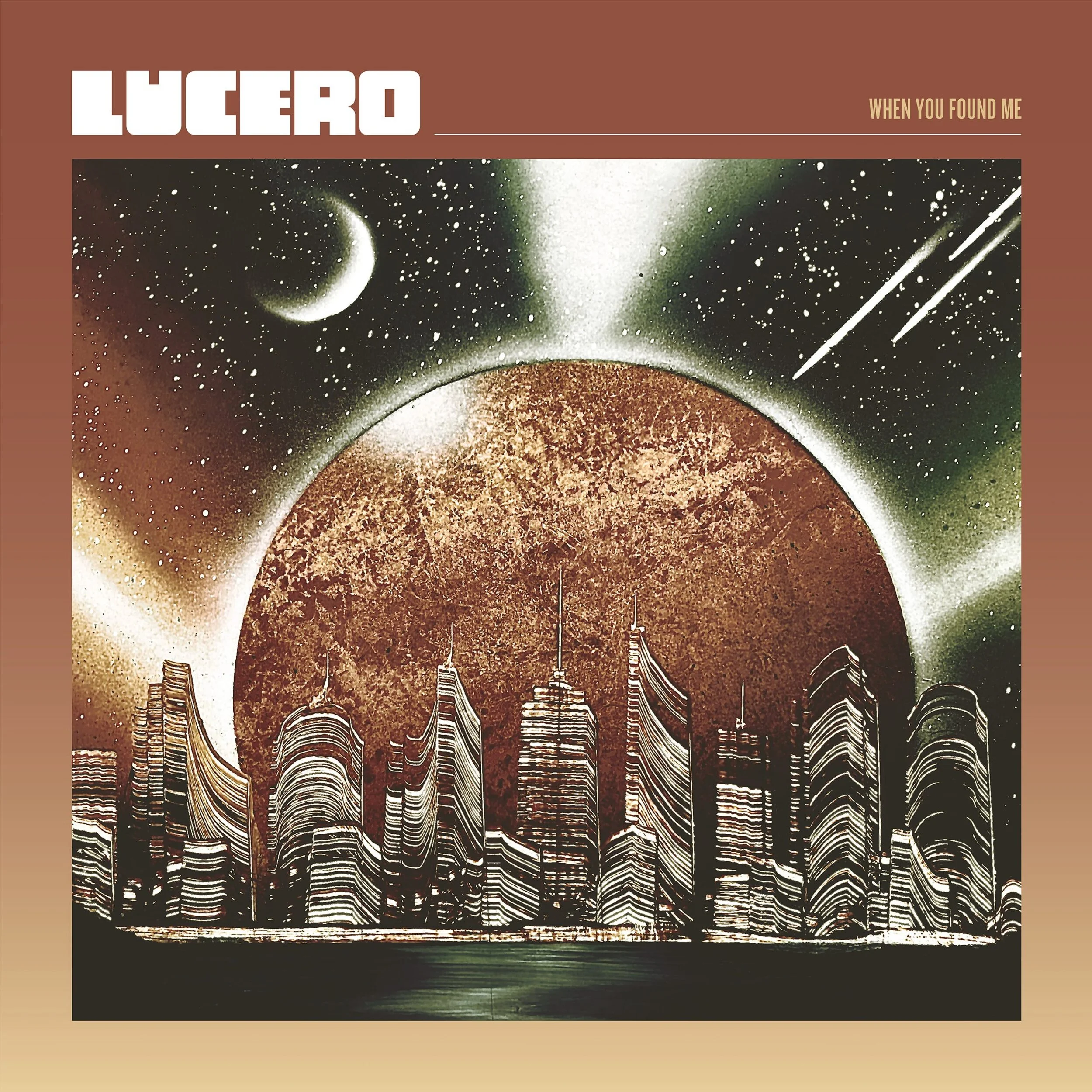Lucero: When You Found Me
Lucero is a mainstay in what is now known as Americana. They represent the difficulty in assigning genre, and at the helm of the ship with sharp lyricism and an honest voice is the songwriting juggernaut known as Ben Nichols. There are bands that are instantly appealing, have an easy to digest sound, and when you show your friends they instantly get it. Let me just say, Lucero may not be that band.
Photo by Bob Bayne
Ben Nichols' songwriting has influenced more lyricists and songwriters than I have time to write or you have time to read. There’s a fearlessness in the musicality of Lucero that accompanies strong songwriting that I know inspires me and has certainly inspired others.
This album is packed with the same genre bending that led to the creation of the term “Americana'' with punk rock, post rock, and cinematic musical gestures that don’t neatly fit into any predefined box. This forces you to set aside some preconceived notions, and invites you to just take the music as it should be taken, on merit. Which means you just have to judge by the most important measuring stick, is it good, or not? Let me be the first to tell you, it is.
In the “dark times” of a global pandemic, with musicians trying to navigate how to stay afloat, stay relevant, and keep going, Lucero hit an odd positive note schedule-wise. While many bands were going into March ready to start tours, or in the middle of tours, Lucero was closing out a long stretch on the road. The hardest working band in Americana was already on the verge of a break, so they dodged a hard bullet.
Ben Nichols had been working on cinematic sounds, using Garageband at home, exploring with the same synthesizers and soundscapes that filled out their 2018 release, Among the Ghosts, which stretched the sonic lexicon of the punk-flavored road tested band.
Nichols shows a maturity and awareness on When You Found Me that comes from a new chapter in a life lived. Trading in hard partying and debauchery for being a father, which lead to a shift in the way in which Nichols weaves tales. In the past, Lucero wrote songs based on first hand, first person experiences, talking about the life lived by Nichols and the crew. The time at home and the change in life experience led Nichols to take a third person approach on this record, telling more imaginative tales of lives lived by others. This move from non-fiction to fiction leads to an additional layer to an already exceptional catalog of storytelling.
Before we dig in to the songwriting and material matters, I want to make a note about the sonic notes of the album. It’s layered in a way that comes across as a soundtrack to a movie. It takes you on a ride with textures that show the maturity of a band that has refined the methods of saying what they want to say. Nichols came to the record with a host of ideas that serves as a roadmap for its layout. It’s a record that sounds familiar in its honesty, and is the hallmark of a band that’s spent more than 20 years refining ways to cut deep. This album gets right to the hard points, a quality that’s afforded Lucero the leeway to be experimental. It’s refreshing, and it hits as hard as any record the Memphis-based mainstays have ever produced.
In true parent fashion, the tales woven for a daughter or the fantastic tales read at bedtime influence the opener of the record, “Have You Lost Your Way.” Opening with a synth soundscape, then a familiar chugging guitar line that underscores the honest timbre of Nichols. You never know if the main character makes it through, but you know she’s going down swinging.
The third track of the record, “Coffin Nails,” hits hard. It’s a personal story of a son dealing with the death of a father. With the atom bomb succinct nature that’s been a hallmark of Nichols' songwriting. The title line, “I weigh my deeds on my father’s scales / I balance them with coffin nails,” stands out on a record of standout lyrics as a weighted hammer that strikes right to the point without any wasted words. That efficiency in words shows the power of intelligent songwriting. Leave the sword at home if all you need is a razor blade.
“Pull Me Close Don’t Let Go” was inspired by the words of a daughter to a father, not any daughter to any father, mind you. Nichols' own daughter Izzy spoke these words to him. These words are put over what could easily be the soundtrack to an emotive scene in a blockbuster. It's a fantastic example of the sonic maturity of this record, with a synth-laden wash of reverb that drones but stays tight and interesting.
“When You Found Me,” the title track to the record, is a song that Nichols' daughter requests after those fairy tales that inspired the opening track. A song she refers to as the “I’m going to be okay song.” It serves as a great bookend against the opening track’s taunting of, “Have you lost your way?”
I’ve taken the time to highlight the parts of the record that spoke strongest to me. Please know that the record from beginning to end is full of tracks that speak clearly and intelligently. This is a record that deserves your attention. All of it. Not something to be approached as a casual listen; it will take you for a ride and remind you in a time that’s difficult for many, that even though we may be drowning, crashing, drifting as described in the title track, as Nichols says, it’s “going to be just fine.”
Keep an eye and ear out. Let Lucero tear you down and build you back up in beautiful ways.
When You Found Me will be available through all the usual suspects on 1/29/2021.
Find more about Lucero here:







